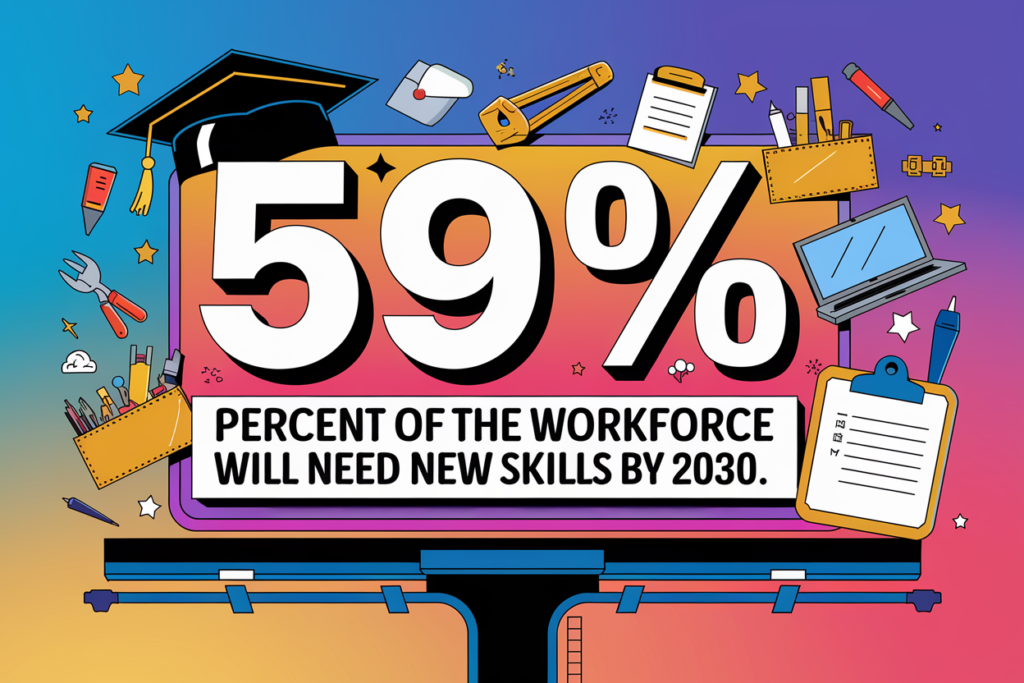According to the WEF Future of Jobs Report 2025 new qualifications by 2030. For SMEs, this is not only a challenge, but also a great opportunity: those who act early will secure important competitive advantages. Because in a short space of time, AI will change the world of work as fundamentally as the steam engine once did.
Why you should take care of your skills now:
- Increased efficiencyAI takes over routine tasks. You gain time for strategic, creative and customer-oriented tasks.
- Better customer relationshipsAI tools enable better advice and customer loyalty.
- New innovative strengthAI opens up opportunities for new business models and sustainable growth.
The top 10 skills for 2030 according to the WEF:
- AI and big data - Understanding AI and applying big data in practice.
- Technological expertise - Always stay up to date.
- Creative thinking - Develop new, original solutions.
- Resilience, flexibility, agility - Actively shaping change.
- Analytical thinking - Understand and solve complex problems.
- Leadership and social influence - Inspire and motivate others.
- Motivation and self-awareness - Make targeted use of your own strengths.
- Systemic thinking - Keeping an eye on the big picture.
- Talent management - Recognizing and promoting potential in the team.
- Curiosity and lifelong learning - Always remain open to new ideas.
170 million new jobs - 92 million jobs lost
By 2030 39 percent of today's skills outdated be. For SMEs that train their teams in good time, this not only means mastering the transformation, but also gaining a competitive advantage in the long term.
MMIND - The new AI academy for SMEs starts in April
MMIND (which stands for Masterminds) is the Meeting point for all interested SMEswho want to get fit for a future with AI, in which humans and machines work together optimally and we not only work together more efficiently, but also better. At the AI Academy, you learn with your team:
- Practical application of AI tools
- Creative problem solving and strategic decision-making
- Responsible handling with AI and data
- Cooperation and exchange with other SMEs
Be there:
MMIND starts in April 2025. Secure your place now - just send us a quick email and we'll let you know as soon as it starts.
SMEs that master new situations flexibly will remain successful. As Charles Darwin said: "It is not the strongest species that survives, nor the most intelligent, but the one that best adapts to change."
Share this newsletter to make your network fit for the future!
👉 Download the WEF Future of Jobs Report 2025 here:



